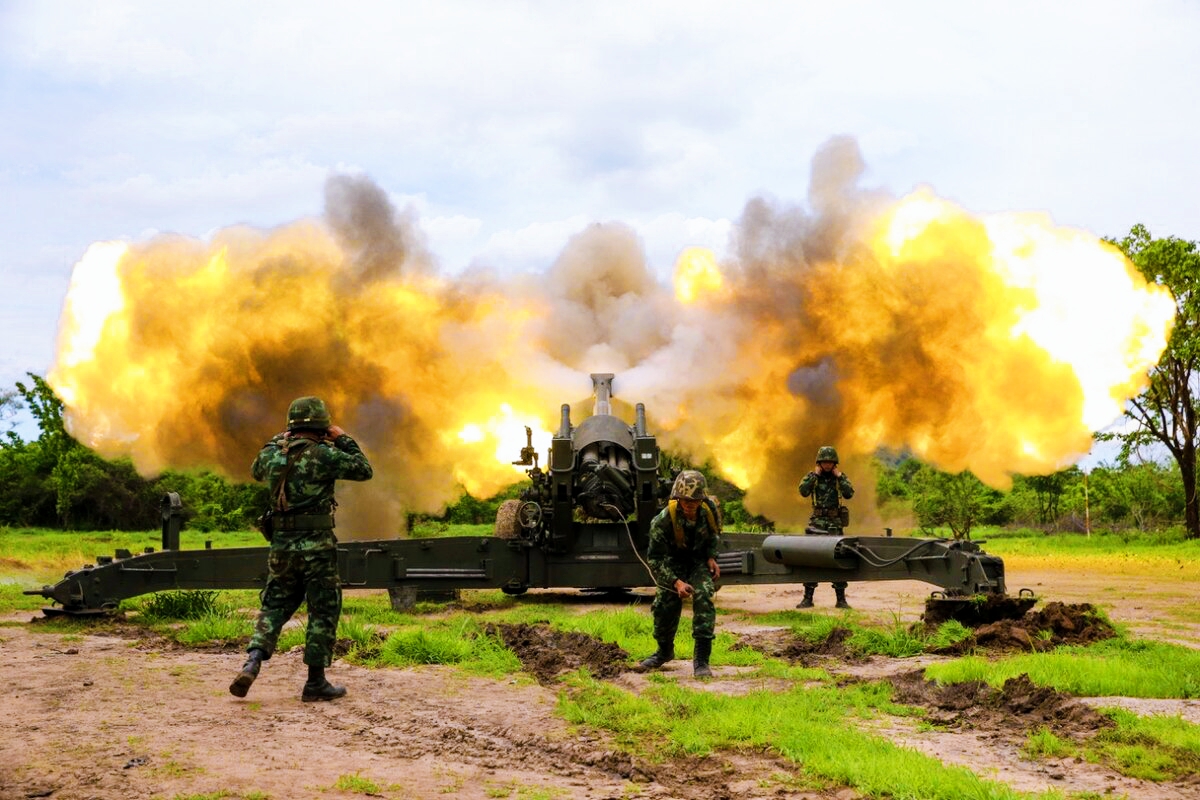In an unprecedented escalation in over a decade, the borders between Thailand and Cambodia witnessed deadly clashes for the second consecutive day, resulting in the death of 32 people from both sides.
Cambodia has called for an immediate and unconditional ceasefire, amidst international warnings of the situation deteriorating into an open confrontation.
Cambodia's ambassador to the United Nations, Chea Ky, stated after a closed meeting of the Security Council that his country demands an unconditional ceasefire, emphasizing the need to resolve the dispute peacefully.
Ky questioned: "How can a small country like us, with an army three times smaller and without an air force, attack a larger neighbor?"
He also noted that the Security Council called on both parties to exercise restraint and find a diplomatic solution, which Cambodia is also seeking.
The clashes erupted on Thursday when Thailand launched airstrikes targeting Cambodian positions on the border, and Cambodia retaliated with artillery fire hitting civilian structures inside Thai territory, including a gas station and a hospital.
The strikes continued on Friday, with local media reporting that Thailand carried out additional airstrikes.
Early Saturday, General Malis Sushata, spokesperson for the Cambodian Ministry of Defense, announced the deaths of 12 more people, including seven civilians and five soldiers, raising the Cambodian death toll to 13.
On the other hand, Thailand reported the deaths of 6 soldiers and 13 civilians, including children, as well as the injury of 29 soldiers and 30 civilians.
The border conflict between the two countries represents their most dangerous confrontation since 2011, involving warplanes, tanks, and artillery in combat operations, amid cautious international silence so far, with anticipation of the diplomatic moves in the coming days.

